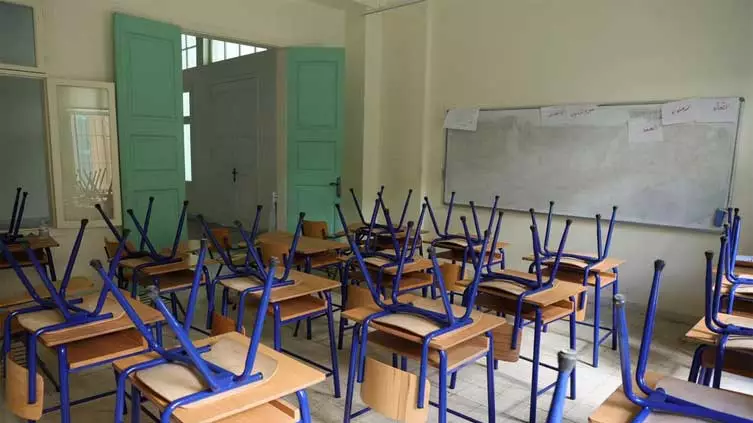
DEIR QUBEL, Sep 28(ABC): School teacher Claude Koteich, her teenager daughter and 10-year-old son should have all been back in class weeks ago – but a crisis in Lebanon’s education sector has left them lounging at home on a Monday afternoon.
Lebanon’s three-year financial meltdown has severely devalued the country’s pound and drained state coffers, pushing 80% of the population into poverty and gutting public services including water and electricity.
It has also left public schools shuttered so far this academic year, with teachers waging an open-ended strike over their severely devalued salaries and administrations worried they won’t be able to secure fuel to keep the lights and heating on during the winter.
Koteich, 44, has taught French literature at Lebanese public schools for exactly half her lifetime.
“We used to get a salary high enough that I could afford to put my kids in private school,” she told Reuters in her living room in the mountain town of Deir Qubel, overlooking the Lebanese capital.
But since 2019, Lebanon’s pound has lost more than 95% of its value as other costs skyrocket following the government’s lifting of fuel subsidies and global price jumps.
From a monthly salary that was once about $3,000, Koteich now earns the equivalent of $100 – forcing her to make a tough choice last summer over whether to put her children back in costly private schools or transfer them to a public education system paralysed by the pay dispute.
“I was stuck between yes and no – waiting for our salaries to change, or if the education minister wanted to fulfill our demands,” Koteich said.
By September, there had been little progress on securing higher salaries given Lebanon’s depleted state coffers. At the same time, her children’s private school was asking for tuition to be paid mostly in cash dollars to guarantee they could afford to pay for expensive fuel and other imported needs.
That would amount to a yearly fee of $500 per student, plus 15 million Lebanese pounds, or about $400.
“I found the number was very high and out of this world for me,” she said.


















